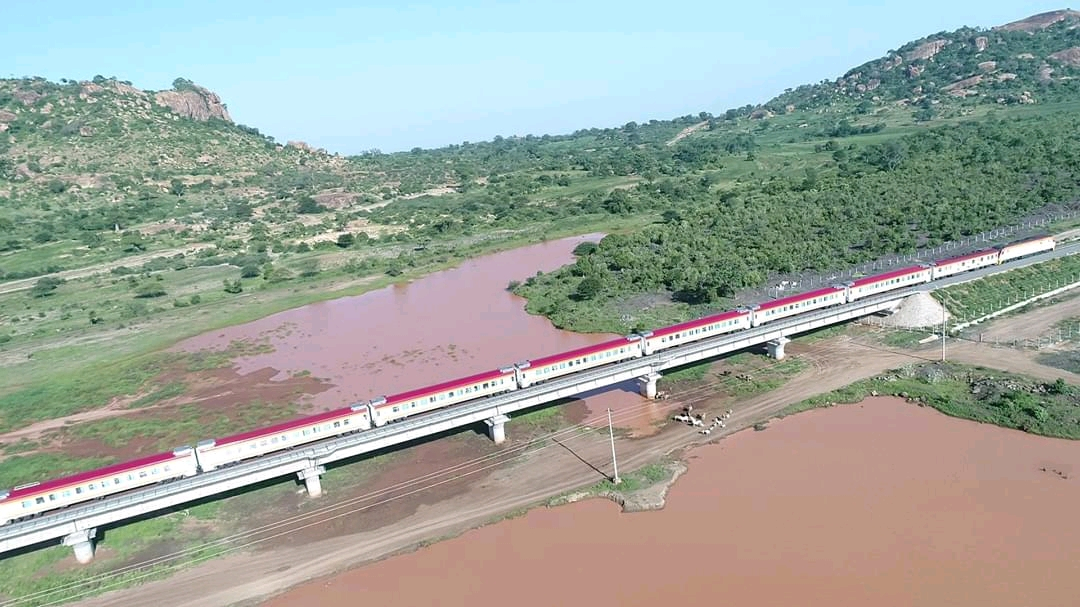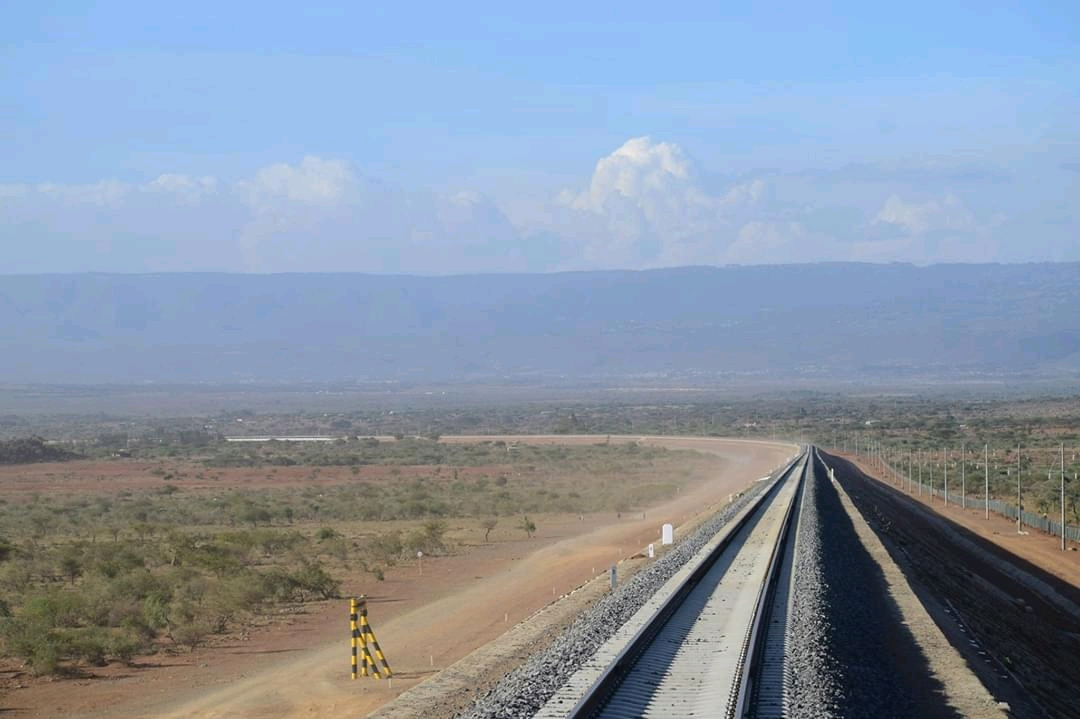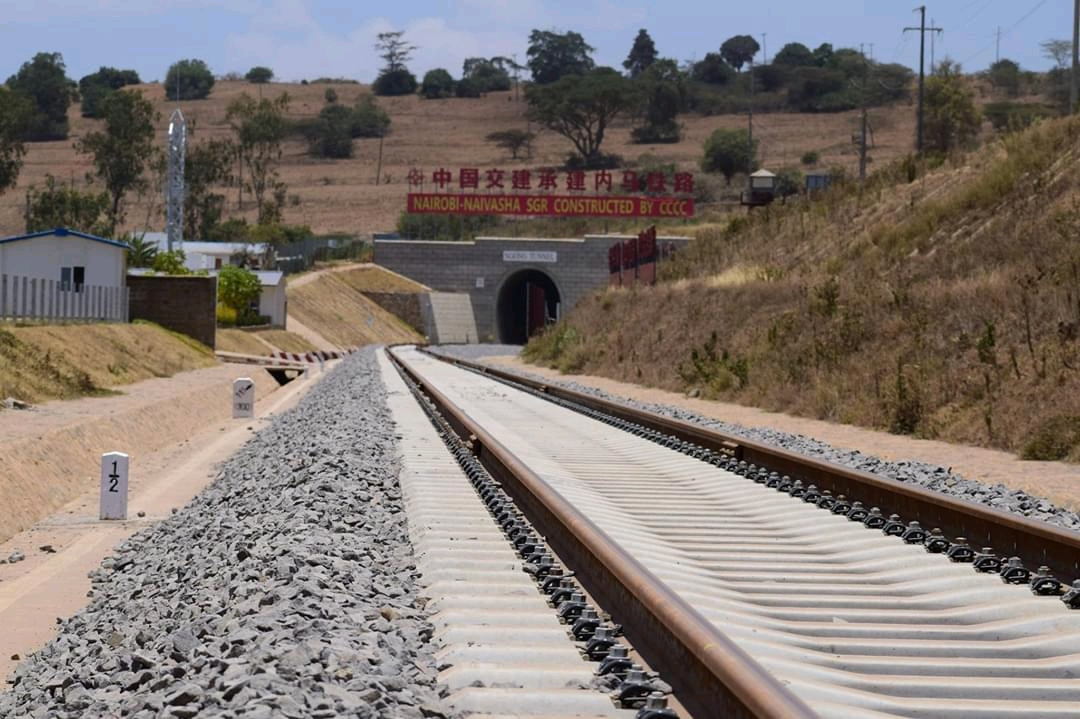
Opinion
08:30, 17-Apr-2019
My story: Inadequate information on BRI in Kenya results in colonization myth
Victor Onyango

Editor's Note: The second Belt and Road Forum for International Cooperation will be held in Beijing at the end of this month. Over the past six years, we have heard many voices – mostly political and economic ones – speak about the BRI. But we wanted to also hear from ordinary people who have experienced the BRI for themselves. Over 100 people took part in our "CGTN Belt and Road Essay Contest," and we selected the 18 best stories. Here is an essay of one of our third-prize winners. The article reflects the author's opinion and not necessarily the views of CGTN.
I had never come across the term Belt and Road Initiative (BRI) until mid-February this year when I landed in Beijing for the 2019 China-Africa Press Center program and attended the famous Chinese Two Sessions.
This is despite coming from a country which has benefited from the BRI through the construction of the Mombasa-Nairobi railway which we refer to as the Standard Gauge Railway (SGR).
Interestingly, if you could ask any Kenyan what the SGR means to us, be ready for various responses, though we know it benefits from a Chinese loan to our country. Most of the media houses in Kenya do not inform the society that the SGR was founded under the BRI; hence I feel that even most of the journalists do not know what it entails.

A picture of the Mombasa-Nairobi railway /Courtesy of Victor Onyango.
A picture of the Mombasa-Nairobi railway /Courtesy of Victor Onyango.
Sadly, the majority of us are not even aware that the SGR was funded and constructed by the Chinese government under the BRI which was introduced to the world in 2013 by Chinese President Xi Jinping and welcomed in different views across the globe.
My perceptions had been influenced by Western countries' views on the BRI that instilled fears among citizens of Kenya who now believe that the 3.2 billion U.S. dollars that the Mombasa-Nairobi railway and state-of-art railway terminals were given to Kenya by China as a way of swaying the country away from its former colonial power Britain and long-term friend the United States.
I once believed that China's intention of being so nice to Kenya was with a view to colonization if it fails to repay the loan despite the numerous benefits the railway like have brought to the country.
President Uhuru Kenyatta's administration has been caught in a skewed and awkward situation in giving satisfactory information to the public to debunk the myth doing the rounds that the country's only port, that is the Mombasa port, was used as collateral for the BRI loan.

A picture of the Mombasa-Nairobi railway /Courtesy of Victor Onyango.
A picture of the Mombasa-Nairobi railway /Courtesy of Victor Onyango.
The Chinese embassy in Kenya together with the government have tried to diffuse this issue of the Mombasa port being used as security but up to now, both sides have not succeeded in convincing Kenyans. Instead, the matter remains a nightmare for President Kenyatta's government with many experts arguing that terms of repayment are not favorable to the country.
The major setback the BRI is facing in Kenya currently is its failure to provide enough information to the public that the country signed a Memorandum of Understanding (MoU) with China for the purpose of creating a global village with a common destiny in terms of economic development and cooperation, and has nothing to do with the arguments of the critics of the BRI in the West.
On March 20, 2019, when the management of Kenya Railway Authority revealed that the government was in talks with China to get 370 billion Kenyan shillings (about 24.4 billion yuan) to complete the third phase, which starts from Naivasha terminal which is expected to be ready by May this year to Malaba in Busia County, western part of the country, critics took the government head-on on social media arguing that it should cease from "selling" the country to China.
My initial views toward the BRI have changed after reading different stories on it and the position of the Chinese government, and I have realized that China means well for my country and many more developing nations. Indeed the relationship between Kenya and China has deepened and is guided by the principle of mutual respect and win-win cooperation.
That China is trying to show Kenya a way to industrialization depicts how much China respects and values its friendship with Kenya, in comparison to Western countries which have been quick to just give donations at the expense of meddling in the internal governance of the country.
According to statistics, in 1981, 51 percent of Kenya's population was living below the poverty line while 80 percent of China's population was extremely impoverished but by 2018, China's poverty rate had fallen to less than two percent while Kenya's rate has not changed.

A picture of the Mombasa-Nairobi railway /Courtesy of Victor Onyango.
A picture of the Mombasa-Nairobi railway /Courtesy of Victor Onyango.
According to China's government report released during the Two Sessions, 13.86 million people were lifted out of poverty in 2018. The outstanding achievement was partly attributed to the accelerated development of infrastructure in poverty-stricken rural areas, where some 208,000 kilometers of roads were constructed and renovated.
When China prioritizes infrastructure in Kenya, it is trying to give my country a key to development which can elevate its people's living standards.
Thanks to the SGR under the BRI, our domestic and foreign tourism has experienced a boom since the completion of this project and the country receives many Chinese tourists. I took a train which we call the Madaraka Express to crisscross the Tsavo National Park while going to Mombasa.
In the past, going to the second-largest city was not easy because I could not afford a flight ticket and taking the bus was tiresome but with the SGR, it is only seven U.S. dollars to reach Mombasa within four hours and a half.
The SGR has improved the country's GDP by 1.5 percent and led to the creation of more than 50,000 jobs, according to government data.
In conclusion, more information should be made available to dispel rumors about the BRI and now that I have been baptized, I will preach the gospel.
(The author is a reporter from Kenya. If you want to contribute and have specific expertise, please contact us at opinions@cgtn.com.)

SITEMAP
Copyright © 2018 CGTN. Beijing ICP prepared NO.16065310-3
Copyright © 2018 CGTN. Beijing ICP prepared NO.16065310-3